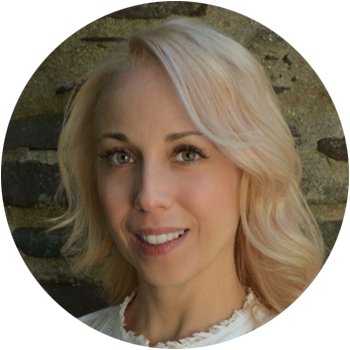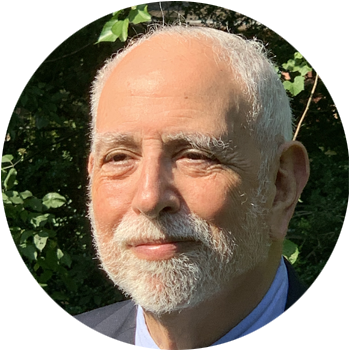1.5 Hours | 1.5 CEs
This on-demand professional training program on Ethical Dilemmas: Best Practices for Forensic Witnesses Working with an Attorney is presented by Michael Perlin, JD, and Heather Ellis Cucolo, JD, in partnership with the Mental Disability Law and Policy Associates.
This program introduces participants to the sometimes difficult relationship between an expert witness and a defense attorney. It highlights the major ethical and constitutional dilemmas that could arise while working together on a criminal or quasi-criminal case.
The program identifies the distinct ethical boundaries that both attorney and clinician must abide by and offers best practices on how to protect professional integrity.
This program is intended for professionals at any stage in their career. Expert witnesses focused on risk assessment, treatment providers, social workers, and forensic psychologists. All environments applicable: court, prison, mental health center, private practice.
Program Outline:
- Introduction to sex offender civil commitment statutes and the role of the expert
- Understanding the conflict between the role of the attorney vs. the role of the expert
- What might be expected of the expert witness and what SHOULD be expected of the expert witness
- Understanding the legal role of treatment vs. the clinical role of treatment in courtroom settings
- The basics of ethical practice for both professions
- How to protect professional integrity when faced with attorney pressure and recommendations for best practices

Intended Audience
This on-demand professional training program is intended for mental health and other allied professionals

Experience Level
This on-demand professional training program is appropriate for beginner, intermediate, and advanced level clinicians.

CE / CPD Credit
APA, ASWB, CPA, NBCC Click here for state and other regional board approvals.
Learning Objectives
Upon completion of this program you will be able to:

Describe the imperfect fit between questions of law and questions of clinical diagnosis, including how statutory language can distort the role of the expert, using the example of sex offender civil commitment laws

Describe how mental evaluation reports are used at trial and the applicable Supreme Court case law that has shaped this area

Describe the various “relationship stressors” that arise during clinician/ attorney interaction and best practices for reducing harm

Describe how to effectively navigate and enhance the attorney/clinician relationship through each of the main stages of a defendant’s case

Curriculum
1. Introduction
2. The Roles of the Expert
3. Use of Reports at Trial
4. Example: Expert in a Sex Offender Civil Case Commitment Case
5. Navigating a Case with an Eye on Attorney Ethics
6. Best Practices
7. Specific Dilemmas
8. Conclusion
Develop a Specialty Area of Practice
Transforming mental health professionals into experts
Expert Instructors
Professional training developed and delivered by the field's leading experts

CE Credit
Earn CE credit for meaningful professional training that will elevate your practice
Convenience & Flexibility
Learn at your own pace, from wherever you might be!
Program Partner
Mental Disability Law and Policy Associates
We are proud to partner with Mental Disability Law and Policy Associates, LLC for this training. MDLPA is a boutique educational training company that offers specialized mental disability law consulting, the creation or enhancement of distance learning programs, in-house or online courses, and day or weekend training seminars to reputable organizations, educational institutions, professional groups, and advocacy groups focused on providing advanced knowledge and skills to persons working with marginalized populations.

CE Sponsorship Information
Palo Alto University, Continuing and Professional Studies (CONCEPT) is approved by the American Psychological Association to sponsor continuing education for psychologists. Palo Alto University, Continuing and Professional Studies (CONCEPT) maintains responsibility for this program and its content. Palo Alto University, Continuing and Professional Studies (CONCEPT) is approved by the Canadian Psychological Association to offer continuing education for psychologists. Palo Alto University, Continuing and Professional Studies (CONCEPT), SW CPE is recognized by the New York State Education Department’s State Board for Social Work as an approved provider of continuing education for licensed social workers #SW-0356 and the New York State Education Department’s State Board for Mental Health Practitioners as an approved provider of continuing education for licensed mental health counselors. #MHC-0073. Palo Alto University, Continuing and Professional Studies (CONCEPT) has been approved by NBCC as an Approved Continuing Education Provider, ACEP No. 6811. Programs that do not qualify for NBCC credit are clearly identified. CONCEPT Professional Training, #1480, is approved to offer social work continuing education by the Association of Social Work Boards (ASWB) Approved Continuing Education (ACE) program. Organizations, not individual courses, are approved as ACE providers. State and provincial regulatory boards have the final authority to determine whether an individual course may be accepted for continuing education credit. CONCEPT Professional Training maintains responsibility for this course. ACE provider approval period: 11/22/23-11/22/26. Social workers completing this course receive (clinical or social work ethics) continuing education credits.



